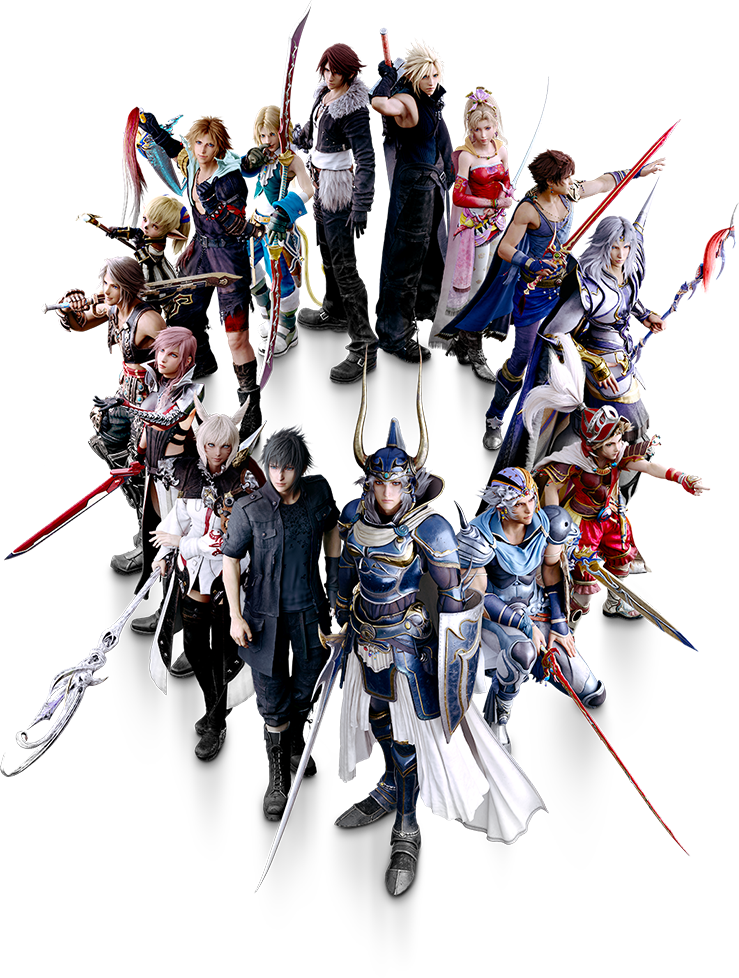We live in an outrageous society.
Every day, we are bombarded by sensational news from “trusted” news outlets, highlighting the worst of what society has to offer. At least in the United States, you would be hard pressed to find a new station that doesn’t treat each passing slight as national news, and often the loudest and angriest are the ones that are heard.
Again, speaking from the perspective of someone in the United States, it is becoming increasingly difficult to believe that our society can ever stitch itself back together, when the loudest and most unreasonable people are given the biggest platforms and the loudest microphones, simply because negativity sells, because we have a negativity bias, because anything that gets you a view or a like is fair game in today’s oversaturated media.

But what people often forget is that extremism in all forms is harmful. People do not live in a world comprised of clean, separate boxes. We live outside the simplicity of “black and white” in the much more complex and confusing shades of grey. But that’s a difficult place to be. Partisanship is easier. Rooting for your team to win is easier. Because it’s hard to both admit that the “other” group is valuable and viable and maintain a sense of your own self.
So we have Coke vs. Pepsi. Android vs. Apple. Democrat vs. Republican.
Playstation vs. Xbox vs. Nintendo.
Every Final Fantasy Game Ever vs. Every Other Final Fantasy Game Ever

Fandom vs. fandom.
But why?
Finding Fanboys/Fangirls
The Shameful Narcissist brought up an interesting point over on Patreon about the difference between fanboys and fangirls. She mentioned that there seems to be a different connotation between these types of extreme fans. After some trudging through some pretty crazy parts of the internet, it seems like fangirlism and fanboyism possibly have different outward appearances, but overall stem from the same incredible devotion to a particular character, story, or fandom. So you guys know the drill; it’s time for some definitions!

While fangirls tend to be seen as more overly-emotional when it comes to their object of infatuation (think squealing teenage girls at an anime convention), and fanboys are seen as the guys on the internet who will verbally attack someone for having a differing opinion (and I tend to agree with this, and, yes, I do believe that men can be fangirls and women can be fanboys), for the purpose of this article, fangirls and fanboys will be lumped together into the same fanperson/fanpeople category and will be defined the way the Merriam-Webster dictionary defines both fanboys and fangirls:
A person who behaves in an obsessive, overly-excited, or overly enthusiastic way.

A fan will see their particular “thing” like a friend: they can admit that it has flaws but love it anyway. While they might not understand why another person doesn’t like their favorite story/game/book/character/whatever, they usually shrug and go about their day. They get along with people in fandoms different than theirs (think the USS Enterprise and the Millennium Falcon being used in the same game by two friends).
A fanperson, on the other hand, sees their particular “thing” like a precious entity that must be defended. People with other viewpoints are wrong and, at worst, not entitled to their opinion. Fanpeople are personally offended when their story/game/book/character/whatever is slighted, and react as if the comment were made about themselves. If their particular fandom has a rival fandom, you can bet the fanperson hates the other fandom (or is at least quietly superior).
Finding Yourself
From an evolutionary standpoint, it makes sense that humans would want to have clear defining lines between “my group” and “your group.” After all, “my group” is probably not going to hurt me, whereas “your group” could pose a threat to the resourced “my group” has. And we are the descendants of those people.
Self-categorization is a way that people look at a group of people and perceive them as, well, a cohesive group of people. It provides a way for people “in” the group to know how to behave, how not to behave, and enables the group to take what is known as “collective action,” as all the people in the group are assumed to have similar ideas, beliefs, etc. Strength in numbers comes from this idea. If all Group A does This Thing together, it will get done.

From here, it’s only a small step to what is called social identity, or when a person defines who they are based on the groups they belong to. Once a person accepts themselves as part of a group, they will look at other members as behavioral role models to determine how we are supposed to behave as part of The Group. Contrast to this, a person who has decided that they don’t belong in The Group will also determine their behavior based on how The Group behaves, in order to clearly differentiate themselves.*
But what constitutes The Group? I think there are as many ways to classify a collection of people as there are sands on the earth. In the case of this article, we’re talking only about people who identify as a fan(person) of a particular story/character/game/console/etc. So, what constitutes The Group here is what I’m going to call a type of brand, with “brand” being a character/story/etc. And loyalty to a brand is something that can be used by marketers, start a flame war, and/or inform a person’s identity, depending on the extent its used.
There are a lot of terms that social psychologists can throw around: self-congruity, self construal, and interdependent construals, but what many of these can be boiled down to (at least for this particular article) is that how much a person identifies with a brand defines how much and to what extent that person will defend the brand.
Drawing Lines
One of the most difficult mental exercises a person can do is to hold two conflicting ideas in one’s mind and truly believe that both of them can be true at the same time. A really interesting example of this is thrown out glibly in Pirates of the Caribbean movie. Captain Jack Sparrow turns to Will and asks him if he can accept that his father “was a pirate and a good man.” In our romanticized view of pirates, this seems like an easy question to answer. But what about the murderer who really loves his wife and children? What about having to admit that Playstation and Xbox are essentially the same systems? What about having to entertain the thought that you are wrong, and believe that’s okay?
![]()
These are hard things to do, and in order to avoid cognitive dissonance, most people will “pick a side” and convince themselves that their choice is the “right” answer. There is something called “choice-supportive bias,” and it explains this phenomenon beautifully well. This bias arises after we make a choice. In this case, we choose to be part of a group; we choose to buy a Playstation, or an Xbox, or a Nintendo system, or commit to upgrading our PCs.
We thus assign ourselves to a group and take that on as part of our identity. Then, in order to protect that identity, and avoid having to face that we might have made a “wrong” choice, we make up all sorts of reasons that the choice we made was not just a right choice, but the right choice. We may deny or forgive minor issues, always give the product the benefit of the doubt, or even go so far as to rewrite history to make it seem like we knew something other people didn’t when we made “our choice.”

All to avoid a hit to our identities, and all to make thinking about ourselves a little easier. After all, if we made the wrong choice,then that means that we were wrong.
And, for some, that is not okay.
When Things Go Down in Flames
As we’ve seen, brand loyalty and grouping ourselves as people go hand-in-hand. Brands encourage us to incorporate them into our identities, which then mandates that we think and act a certain way.
But sometimes, this goes a little too far. Sometimes, a person may identify a little too strongly with the brand (game, story, character, fandom, etc.) and incorporate it to the point where a large part of their identity is wrapped up in this brand. When brand-identity is high to the point of it being one of the main components of your identity, an attack on the brand becomes an attack on you.

And people don’t like being attacked. People don’t like being told that their ideas are wrong, or stupid. And, truth be told, deep down we all like when people agree with us.
When that is perceived as under attack, some people (fans) will default to a more neutral reaction, perhaps disappointed, maybe thinking the other person is wrong, but not really caring too much as they may have assimilated other identities into their being. But to a fanperson, the dissent strikes at the core of who they perceive themselves to be.
Don’t be fooled, not all fanpeople are raging trolls who will spit fire at those who dare question their object of devotion. Some will quietly seethe, offended and angry at the person who dared voice an opinion against their own. To be as nonjudgmental as I can, it’s the kind of emotional reaction that denotes a fanperson, not whether they outwardly become an emotional/aggressive person afterwards.
But the point is, the person feels under attack. They have taken on the identity of The Brand so strongly that it is not just a part of them, but the part of them that is most dear, or perhaps one that is most integral.

Their Brand is their choice, which was obviously correct because they made it, and they wouldn’t make a wrong choice, would they? This is their fandom, and it’s a good one because they have good taste, after all. This is their favorite character, or favorite pairing, or favorite game, or preferred gaming system, and it’s a lot easier to label anyone who disagrees as a hater than entertain the idea that there is more than one right answer to what, at the end of the day, is a question of preference.
Or, perhaps even harder is to be forced to entertain an attack on your identity with grace and objectivity.

Anonymity
A long time ago I read an article over on Adventure Rules about anonymity online gives people more opportunities to be jerks than if they had to have a similar interaction face to face. While I think that anonymity certainly does nothing to stop the insults, and most definitely gives people and easy and fairly punishment-free way of being jerks, this isn’t the reason people are driven to these high emotions.
The added anonymity certainly makes it easier to express them, and ranting at an avatar is a lot less socially awkward than saying those things to a real live person, but people in the physical world have gotten into some pretty serious fights over fandoms, too. I would argue that being a troll and being a fanperson sometimes overlap, but poor social skills or a desire to give someone a hard time doesn’t automatically translate into someone being a fanperson.
Tempering the Flame
I have to admit, marketers feed on fanpersonism. They like strengthening the lines that people draw between themselves, because the more loyalty they have, the more money they make. And the more integral their product is to your identity, the more loyal you will be.

Does it matter to them that Mass Effect fans get mad at each other over romancing Liara? Do they care if people get into arguments over Playstation vs. Xbox on YouTube, or call each other names? Do they care that people in each group style themselves as better than people in other groups, in order to preserve their sense of self?
Well, if leadership isn’t coming from the top, what can we do?
Honestly, in a world so churning with negativity, I’m not sure there is anything one person can do to stop it. This will need to be an idea whose time has come, and I’m not sure whether the community is about to embrace what I have to say.

The first step, like anything else, is for the fanperson to admit they have a problem. Not admitting it to excuse it, but really admitting that their behavior is problematic, even if that behavior is simply getting angry when someone disagrees with your preference for your designated brand or fanperson object.
The first-and-a-half-step is remembering that you are more than your fandom, or at least reminding yourself that disagreements about the brand are just that: disagreements about the brand. They are not personal insults. Along with this, I’d suggest the fanperson really trying to figure out what it is about the brand that has earned such loyalty from them.

The second step is even harder. Most people don’t intentionally do things to upset others, so if someone says something that is upsetting, take a deep breath, count to ten, and be a civil person when you state your opinion back. And, like your mother always told you, if you can’t say anything nice, don’t say anything at all. No insults, no anger. If the person you’re talking to is any amount of decent, they will usually offer something conciliatory to show they didn’t mean to offend you.
The second-and-a-half step is that even if the person is not decent at all, remember that doesn’t give you permission to become a raging lunatic, yourself. Just leave the conversation.

Thirdly, following this conversation (however it ends), remind yourself that the person is talking about something that is open to interpretation, and not directly insulting you as a human being.
Bottom Line
Am I saying that people shouldn’t be fans of things? Not at all. Everyone is going to have preferences, everyone is going to have choice-supportive bias. Everyone is going to have a brand that they’ve incorporated into their identity to the point where they are personally offended when it’s slighted. Games, sports teams, politics, everyone has a brand they buy into.
Everyone is entitled to their opinion. Everyone is entitled to their emotions.
What we are not entitled to is bad behavior following these opinions and emotions.
We are also not entitled to refusing to listen to other people, or refusing to entertain that we can both be right and wrong at the same time.
So fangirl over your favorite character. Hug your preferred console. Sit in superiority behind your powerful PC. But just remember that for everything you love and think is perfect, there is someone who doesn’t like it and only sees its flaws.
And you know what?
You’re both right.
What do you think? Is fanboyism/fangirlism a way of life for some groups, or is it something we have more control over? Do you differentiate between fangirl and fanboy? How? Let me know in the comments!
Thanks for stopping by, and I’ll see you soon,
~ Athena
**This article has some extra content available on Patreon**
What’s next? You can like, subscribe, and support if you like what you’ve seen!
– Support us on Patreon, become a revered Aegis of AmbiGaming, and access extra content!
– Say hello on Facebook, Twitter, and even Google+!
– Check out our Let’s Plays if you’re really adventurous!
More Reading:
Kressman, F., Sirgy, M. J., Herrmann, A., Huber, F., Huber, S.,& Lee, D.J. (2006). Direct and indirect effects of self-image congruence on brand loyalty. Journal of Business Research, 59, 955-964. Linked here
Kuenzel, S., & Halliday, S.V. (2010). The chain of effects from reputation and brand personality congruence to brand loyalty: The role of brand identification. Journal of Targeting, Measurement, and Analysis for Marketing, 18(3-4), 167-176. Linked here
Nickerson, R.S. (1998). Confirmation bias: A ubiquitous phenomenon in many guises. Review of General Psychology, 2(2), 175-220. Linked here


I think that fangirling over a certain character that is perceived to be hated by most of the internet (not mentioning any names 😛 ) has forced me to become more open to opposing views (or go crazy). If I’m in a bad mood, I definitely get quiet-seething-cranky if someone criticizes my shero (even respectfully), but for the most part I try to be reasonable.
At the end of the day, I have special feelz for the Final Fantasy XIII trilogy and many people seem to dislike it. We are all humans with different thoughts and feelings. The brands and things we fight over aren’t actually real. If we just respected each other, the world would be a better place. 🙂
LikeLiked by 2 people
Anyone who focuses on the things that unify us over the things that divide is is someone to be listened to, in my book.
There’s nothing wrong with being a fanboy or fangirl at all! It’s just important to be aware of, so the fanperson doesn’t become toxic,either to themselves or others. Being reasonable in the face of fanpersonism is definitely tough, but a worthy goal!
LikeLiked by 1 person
I do mostly agreed although Playstation or Xbox are not systems, but consoles. Operating system on Playstation is Orbis OS and Xbox runs custom Windows.
I think that problem of today’s society is lack of proper education about what is wrong and right and that we are overflown with negative information. This becomes our normality where people loaded with bad feelings are common thing.
LikeLiked by 2 people
I agree with your comment, there is a difference in consoles. Thought I feel this topic is not as complex and your wrap up ‘This becomes our normality where people loaded with bad feelings are common thing’, its very true. One of the reasons I unfollowed and let social media groups and pages because people spent more time arguing opposed to actually sharing ideas and meeting one another virtually. I rememeber ‘message boards. forums and chatrooms’ when people did troll but you got to know the other chatters and get familiar with out making cliques or categories.
Gamer Gate shed light on some of the hate within the industry and how commentators were telling lies and getting support from key corporations. I think that Fan Boy and Girls matter involves borderline obsession that tends to prevent progress of these individuals. Having grown up in the consoles wars I never let that debate or any other dictate why view. Deadpool and Spawn are my favorite comic book characters yet I read many more other titles at the same time .
Fan Boys and Fan Girls belong to the same global community, a community founded on ideas, hobbies and shared passions. This community was build on comics, video games, movies, books, and a shared feeling of belonging despite color, creed orientation. Growing up, the nerd community I belonged to did not add value to an individual for belonging to a certain community or group, it did not matter but today I see more and more trolling over YouTube videos instead of enjoying the forum of discussion.
I completely agree with Athena when she wrote ‘What we are not entitled to is bad behavior following these opinions and emotions’. The narrative should never be fueled by opinions and emotions when concerning what we can think, say or share with each other. It should be entirely OK for fans to voice dissatisfaction without fear of hurtful labeling which could impact their real lives. Boy or Girl we need to not forget why we joined this community, my fellow nerd and nerdettes would not have stayed in a community that persecuted them or censored their opinions. It is OK that the girl cosplaying Superman does not win the look a like contest with out everyone getting accused of something that was never there. I sure would not have remained if I ever felt being a nerd forced imaginary responsibilities upon me that would detract from the enjoyed of discourse, debate and enjoying the products without being accused of being part of a conspiracy.
And to clarify, I am not a Fan Boy, I am a nerd and fan but not a Fan Boy. I feel that the article is well written, you did your research and I look forward to reading more from you Athena.
LikeLiked by 2 people
It is very true what you wrote. We simply forget that games, comics, etc. are for fun, not war. Instead of uniting, we are dividing. And it’s getting us to nowhere. I do love gaming and it hurts me when I think on the war around PC, consoles, etc. Both are made for fun and rather then use for fun, to relax and make friends, people get themselves frustrated and make enemies… This is pretty insane.
LikeLiked by 4 people
Thank you for your thorough comment! I wholeheartedly agree that we need to focus on what brings us together, rather than what divides us. I like to think that there is a “silent majority” of decent people who are gamers, and we just don’t hear from them too often, but I suppose if they’re silent then we’ll never know.
I’m so glad you liked the article. I do try to research topics like these, as they are rarely as simple as we are often led to believe. I hope to see you back soon!
LikeLiked by 1 person
System is a commonly used term for a console. Used to be it would even say entertainment system or game system right on their boxes.
LikeLiked by 2 people
I didn’t know about this. Still it sounds odd for me as I’ve got different definition of this but at least I know what you meant. 😉
LikeLiked by 2 people
I definitely think that once something becomes “normal” in a society, it becomes more accepted and then more prevalent. You’re right that education about how to deal with dissent is needed, as is a shift in focus in society, from the feelings of the individual to a general societal altruism, but I think that second part is asking for a lot!
I see the confusion. I’m not sure from where you’re posting, but “system” is a term sometimes used to describe any manner of connected pieces that create a whole, like “stereo system.” It can, like you mentioned, also refer to an “operating system,” or sometimes a “gaming system.” Again, I’m sorry for the confusion.
LikeLiked by 1 person
This is a great post!
I think the world has probably always been this negative, generally speaking, there’s a lot of “bad stuff” that goes on. There’s always been wars, stupid people and so on. We just hear about it more readily (and much sooner) now, because technology gave most of the world a voice, thanks internet.
How many of the 8bn or so people in the world are currently without internet? Not many now, I think Facebook are working on reducing that number too…
Where gaming is concerned, my main platform for over 20 years has been PC, but in 2011, I bought my first console in a long time; I’m fully converted now. I get to enjoy Xbox, PlayStation and everything the PC has to offer. I even use a controller on my PC, if I want to. That was the biggest change for me, learning how to use a controller! I always learn the keyboard/mouse and controller bindings for games now, so I can just switch when it suits me.
For me that’s what it is *really* about, choice/freedom. I can play whatever I want, with my input of choice, wherever and whenever I want. Gaming on my terms, that’s what I care about.
I get that some people can’t afford every option, but that doesn’t mean you have to defend your choices so vehemently. It’s ok to like the thing if someone else doesn’t like it.
LikeLiked by 1 person
Thanks!
You’re probably right. People have always found lines to draw between themselves and others, and the internet can just amplify that…
That’s awesome that you are able to have a cool set up that includes to many consoles! You’re right that even if you can only afford one or another, it’s okay for someone else to have something different (or, like you said, to like something that another doesn’t).
You hit the nail on the head with gaming being about being something enjoyable and providing lots of choices and freedom to players that they might not have elsewhere. That is definitely a good message to always bear in mind!!
LikeLike
Eh, I’ve wasted a lot of my life fanboying or fangirling over various things. Being way into a certain something can bring with it a lot of bonuses. Community, depth of understanding, integration, etc. As I’ve matured, though, the idea of having such negative reactions to simple contrary thoughts has become absolutely disgusting to me. Discussion is a great thing, and without being able to calmly talk out contrary points, we’re losing a lot of the value we get from doing it.
Groupthink, that Us vs. Them mentality, the need to adhere to the party line, it’s all become disgusting to me. It’s the death of critical thinking, and it leads to so much ugliness.
LikeLiked by 2 people
I think it all comes down to mutual respect. I’ve always been one for obsessions, and even though I’m pretty empathetic, I’d struggle seeing how someone couldn’t see the virtue of something I loved so much. I also understand that not everyone is as empathetic and/or as hypersensitive, but the people who were derisive seemed to not care if I were the same to the things THEY loved. You hit the nail on the head with being so close to something that you feel attacked when the thing you love is.
LikeLiked by 1 person